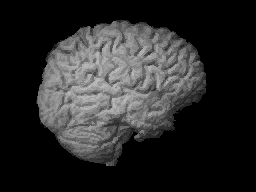Alexia
From Psy3241
Alexia is an acquired type of sensory aphasia, that occurs when damage to the brain causes the individual to lose the ability read.
Contents |
Pure Alexia
Pure Alexia is also known as acquired Alexia. Patients with this form of Alexia have the ability to write and spell words. Language functions normally, with often difficulty of retrieving words. This form of Alexia can be a result of lesions to the brain that block input from the visual cortex to the left gyrus.
Surface Alexia
Surface Alexia is characterized by the inability to distinguish between homophonic words such as pair and pear. Patients rely on the pronunciation of written words in order to understand their meaning. Lesions to the temporalpartial region of the left hemisphere are associated with surface Alexia.
Phonological Alexia
Phonological Alexia causes disadvantages in the recognition of preposition and conjunctions compared to nouns. Patients with this type of acquired sensory aphasia are unable to read unfamiliar words. As well have problems with abstract words such as honesty, responsibility and loyalty.
Deep Alexia
Deep Alexia causes a semantic paralysis when reading out loud. For example when reading lawyer the patient might actually say attorney or when reading cold the they might say hot. Deep Alexia can cause a profound disturbance in pronounceable non-words. Almost all parts of speech are affected by this condition. Lesions associated with Deep Alexia are typically extensive, including frontal and extending posteriorly left lobe.
Refrences
Friedman, R. B. (2006). Alexia. Retrieved April 21, 2008, from Center for Aphasia Research and Rehabilitation Web site: http://gumc.georgetown.edu/departments/neurology/friedman/alexia.html
Leff, A. (2004). Alexia. Cognitive Primer, 4, Retrieved April 10, 2008, from http://www.acnr.co.uk/pdfs/volume4issue3/v4i3cogprimer.pdf

